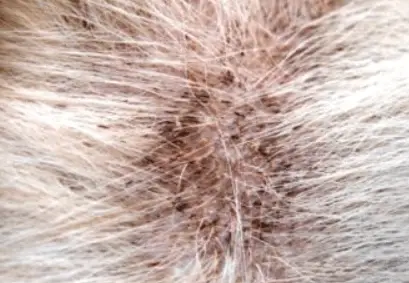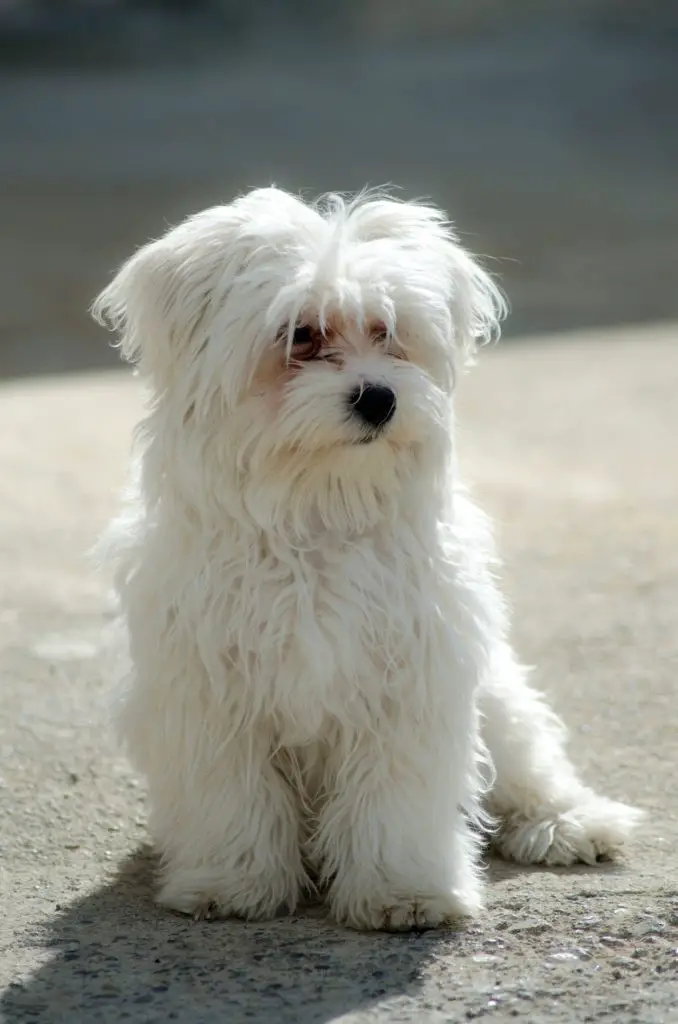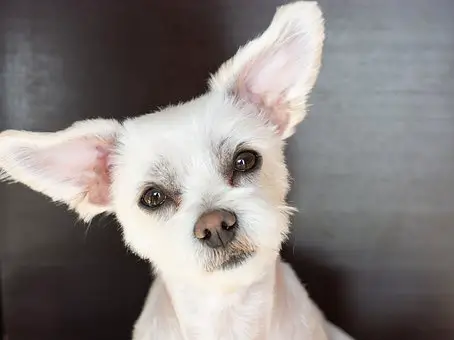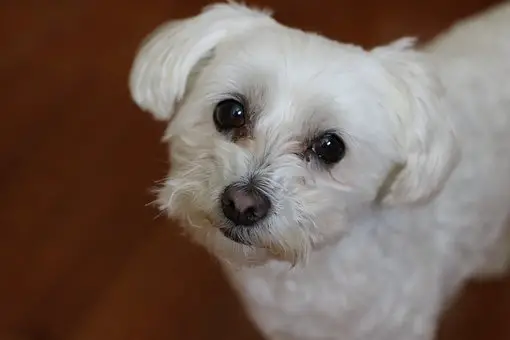Why does my Maltese Smell Bad – Causes and Treatments
Maltese dogs are known as a dog breed which usually do not have a bad smell but even they can develop an unpleasant smell on the odd occasion These bad smells can even happen if you are giving your Maltese dog a regular bath and grooming. Many of the bad smells which are developed by a Maltese dog is due to an underlying health condition or infection. This article is going to list out the most common reasons a Maltese dog smells bad and provide a large number of tips and advice on how to remove the bad smells from your Maltese dog. No one should have to live with a smelly Maltese dog when there is no need to. Lets get right into it.
The 10 reasons a Maltese dog can smell bad include:
- They are dirty
- Anal Glands
- Yeast Infection
- Body Oils
- Fecal and Urine
- Bad Breath
- Ear infections
- Skin Issues
- Flatulence (Gas)
- Wet Dog
1 – Dirty Maltese Dogs
A common cause of a dog smelling is because they have been running around, rolling in dirt and digging through garbage. Maltese dogs are close to the ground and they will quickly accumulate dirt in their fur and it can get trapped on their body. Dirt will eventually start to smell if left in the coat for an extended period. The easiest and quickest solution to a dirty dog is to give them a bath.
2 – Anal Glands
Maltese dogs have a set of anal glands which can fill with a very nasty, smelly liquid. Anal glands are also commonly referred to as scent glands or anal sacs. They are located directly on the rim of the anus. The liquid inside these glands is an oil which has a very potent smell and a small amount is released every time dogs gather together to release their scent. It is thought that the smell from the anal glands allow a dog to transmit the dogs gender, breed, health and mood to the other dogs which smell it. The other time the oil may be released is when a dog has bowel movements especially if the stool is firm or hard. Occasionally the anal glands can become enlarged and will retain an increased amount of the oil. Your Maltese dog will try and release this excessive anal gland oil by rubbing their butt on the ground. This is because the increase in size of the anal sacs can be uncomfortable and itchy. The rubbing will release some of the oil onto the ground and this oil can smell really bad. The smell is even worse if a tear occurs in the anal gland and a large amount of oil is released. The oil from the Maltese dogs anal gland will be a pale yellow or brown. There are a few options when it comes to the anal glands having excessive fluid. You can get your vet to squeeze out the fluid or if you are game enough you can squeeze out the fluid (but wear a nose plug). The smell will be bad. If you notice your Maltese rubbing its behind on the floor then you know that anal glands are the likely problem. Ensure you mop or wash the area which has was rubbed against to remove the smell.
3 – Yeast Infections and Microorganisms
Infections can be smelly because of the buildup of micro organisms in the infection. yeast infections will tend to have a build up of a microorganism called Malassezia. This microorganism can produce a strong unpleasant smell that is similar to an musky, damp smell. It usually smells like old clothes which have been left wet in the washing for too long. Another similar smell is similar to that of people feet when they have been sweating or have athletes foot. Maltese can suffer from yeast infections just like any other breed of dog but luckily they do not have as many skin folds for the yeast infection to get hold. Dogs which have a lot of excessive skin such as bulldogs are more prone to yeast infections. Overweight Maltese dogs will have a greater chance of a yeast infection compared to a skinny, fit Maltese dog. Yeast infections can affect the skin, paws or ears. The infections can usually be identified y a discoloration, itchiness, smell and in severe cases sores, scaly skin and hair loss. yeast infections tend to occur due to medication, a damp or wet environment, an imbalance in the immune system and by certain foods such as honey. The best way to treat yeast infections is by talking to your vet and using medications. Removing the environmental cause such as a food trigger will also help.

4- Body oils
A Maltese dog will naturally produce oils from their body to keep the skin moist and the hair soft and moisturized Eventually if these oils are not washed off they can start to create an unpleasant odor on your Maltese dog. The quickest remedy to this situation is to give your Maltese dog a bath as this will strip away the oils and allow them to reproduce again at a manageable level. Infrequent bathing may cause this problem, but too frequent bathing can also have other issues as the oils are needed to strengthen and moisturize the coat. When bathing make sure you use a shampoo which contains soap as soap is what breaks down the oils and fats and allows the water to wash them away. Ensure that your dog is covered with the soap as per the recommendation on the dog shampoo package. The shampoo require time to break down the oils so a quick rinse will not be enough. Some shampoo’s also do not break down the oils so ensure that you have a product which can do the job. if you find your dog shampoo is not working then try another brand and see if it helps. Brushing your Maltese dog everyday is another solution to this bad odor. Brushing redistributes the oils across the body and will remove dead hair which allows excessive oil to also be removed. brushing also helps move the oils away from the skin and across the entire coat which can reduce the odor.
5 – Fecal and Urine
Dogs do not use toilet paper and Maltese dogs can have very long hair around their genitals which can become contaminated with both fecal and urine. Both urine and fecal can smell bad enough, but when it has had time to soak into the Maltese hair and possibly the paws over a number of trips to the bathroom the smell can be really bad. A lot will depend on what surface your Maltese puppy is urinating and relieving himself on. Grass and soft dirt or a puppy pad will have considerable less splash back than a hard surface such as wood or cement. The best solution to a dog who has this bad smell is to give them a bath with a shampoo. Once the bath has been done ensure that the hair around the anus and around the back legs is not too long that it drags on the ground when they squat down.

6 – Bad Breath
Maltese dogs are a breed known for having bad teeth and bad breath. Halitosis is the scientific name for bad breath. Even if you do your best to shampoo and bath your dog and you regularly groom them, if they have rotting teeth or gum disease a very bad smell can be coming out of their mouth which will overpower all other smells. You will generally notice this when you have them closer to your face but in extreme cases the bad breath can be bad enough that you can smell it from a distance. There are several options to treat bad breath and these will include brushing your Maltese dogs teeth, ensuring they get some harder food to eat such as dental sticks, and finally taking them to the vet to get their teeth inspected and cleaned. If the Maltese dog’s teeth are rotting your vet may need to remove a few of the teeth. Do not despair if your dog needs to have rotten teeth removed as the rotten teeth could be hurting them to eat. The only difference to a dog with missing teeth is that their tongue can sometimes stick out and they need to eat softer food.
7 – Ear infections
Ear infections can be a common issue in Maltese as they have tear drop ears which can trap the moisture inside. Ear infections will have a similar smell to a yeast infection and will be noticeable only if you smell near the ears. if you notice your Maltese puppy is pawing at its ears or is shaking its head then you should check the ears for a smell. The best way to prevent ear infections is to ensure the ears are cleaned and that no water is left in them after a bath. If you suspect your dog has an ear infection then take them to the vet to get some ear drops or medication.
8 – Skin Issues
Skin infections and certain skin conditions can increase the production of microorganisms which can start to smell. The Maltese dog is a lucky breed in that they tend to not put on too much weight and do not have any excess skin folds. This helps to reduce the chances of a skin infection but parasites can affect the skin and cause skin loss. In the worse case sores and scabs can appear from some skin infections and these can turn smelly. Hopefully you care for your Maltese dog and get them to a vet when they have a skin infection but unfortunately not all owners can afford to and some dogs do not have homes. The best treatment for skin infections is to get on to them early and talk to your vet about them. They will be able to give your Maltese medication that will clear up the infection before it gets smelly and serious.
9 – Flatulence (Gas)
Flatulence can be a big problem for some Maltese dogs and the smell can be really bad. I am talking about the occasional flatulence which happens to all dogs, but I am talking about excessive flatulence in your Maltese dog. In most cases the problem of flatulence comes down to the food being fed to your Maltese dog. Usually the “wet food” or soft food variety will cause more flatulence than the hard kibble. If you find your Maltese puppy has flatulence then try changing out the food for a week. It needs a while as changing food can upset the stomach of your Maltese dog before it settles down. If changing food has not worked and you have tried to go to a pure hard kibble diet and that also hasn’t worked then you should consult your vet to check if there are any underlying health conditions which could be contributing to the problem. Flatulence can be solved so don’t put up with it from your Maltese dog.
10 – Wet Dog Smell
The damp, moldy smell of a wet dog can be a very off putting odor. The wet dog smell actually comes from the evaporation of the water fro the dogs body and with it the smells of the microorganisms, dirt and other compounds which are found in your Maltese puppy’s coat. The easiest way to stop a wet dog smell is to ensure that you thoroughly dry your dog including using a blow dryer. Be careful using the blow dryer as they ca be hot on your dogs skin and rough on the coat so keep it on a cool setting or at a distance. Another good idea is to put in a hair powder after a bath. This powder helps to remove any excess moisture and protects the coat and skin of your Maltese dog.

Treatments for Bad Smells on a Maltese
While I have discussed some treatments above for each particular bad smell on your Maltese this section will deep dive into a few more options in order to have your Maltese smelling fresh and wonderful. If you have been able to identify where the bad smell is coming from this will help pin point the treatment you need to use. Lets get into the best treatments for a bad smell on a Maltese dog:
- Baths
- Shampoo choice
- After bath powder and deodorants
- Grooming
- Medication
- Brushing teeth
- Anal gland relief
- Vet
Treatment 1 : Bathing your Maltese dog
Baths should be given approximately every 3 weeks. If your Maltese dog is an inside dog this can be extended to 4 weeks at the longest. The reason they need a bath this often is because the oils will build up on their skin and coat and they need to be washed off. Baths are also a good time to check over your dog to ensure their skin and hair is in peak condition and to apply protective and restoration products that will help the coat stay shiny. Even if your Maltese smells OK and looks OK you should stick to this schedule so that you can keep their coat as healthy as possible.
Treatment 2: Shampoo Choice
Shampoo choice can be important for dog breeds with thin hair like the Maltese dog. The best shampoos will have a pH balance of between 6.5 and 7.5 and will include ingredients to condition and rejuvenate the hair. Not all dog shampoos are the same and some are made for thicker coats which should be avoided as these can be harsher on the coat of a Maltese dog. Inferior shampoos will also skim over the body oils and not break them down and remove them and this can leave the smell on your Maltese puppy. There are also conditioners for dog coats which will help to smooth out the hair cuticles and provide a smooth, sleek, shiny coat. Do not use the same shampoo that you use on a human on a Maltese dog as they have different ingredients to treat the different type of hair and skin on your Maltese dog.
Treatment 3: After bath Powder and Deodorants
If you notice that your Maltese still has a smell after a bath you can use a deodorizing spray or powder. These are usually left in after you have given your Maltese dog a bath. These sprays and powders can combat the odors and leave a nice fresh fragrance. The sprays will also help with preventing tangles and will protect the Maltese dog’s coat. When using these sprays you will usually apply the spray or powder and then brush it through the Maltese dog’s hair to ensure that it is evenly spread and well distributed. if you do not have time for a good brushing you can run it through with your hands quickly but a brush is preferred.
Treatment 4: Grooming / Brushing your Maltese dog
Brushing and grooming your Maltese puppy will allow you to remove excessive loose and dead hair. it will also help to redistribute and remove excessive body oils which can build up and cause a bad smell. Brushing will take the oils which are produced by the Maltese dog’s skin and smooth it out from the base to the tips of the hair. The other great thing about brushing a Maltese dog’s hair is that it will stimulate the hair follicles, prevent and remove tangles, remove small debris and the most important is it will feel great for your Maltese dog. If you are wondering how often you should be brushing your Maltese then the answer is at least every 2 days for long coats and at least every 3 days for short coats.

Treatment 5: Medication
Some of the reasons for bad smells are due to infections such as skin infections, yeast infections and ear infections. These smells can be treated by treating the infection with medication. You will need to consult your vet to get the right medication for your Maltese dog. Treating infections is an important part of being a pet owner and the care taker of your Maltese puppy. If there is a history of infections then you may want to talk to your vet about what may be causing the infections and determining if it is an underlying health issue such as an allergy or if it is an environmental issue (certain plants or food). Another treatment option for dogs with recurring skin infections is to use an anti-bacterial shampoo which will help treat any minor flare ups and protect your Maltese dogs skin between each bathing.
Treatment 6: Brushing Teeth and Dental Hygiene
Older Maltese dogs are prone to getting rotten teeth and bad breath. The reason this happens is because they are fussy eaters and they shy away from food which is hard. They love to eat fresh meat and soft foods. This has the smelly issue of their teeth getting covered in plaque. If the plaque is not cleaned off regularly it can lead to gum disease and rotten teeth. The easiest treatment is to brush their teeth every week. there are special canine tooth brushes which are specially designed to brush a Maltese dogs teeth. Another option which works only on some Maltese dogs is to give them dental sticks. Some Maltese dogs will not touch them but if your dog loves them they are an easy way to keep their teeth nice and clean and this will help improve their bad breath. The treatment for Rotten teeth is that your vet will need to remove them via surgery. This can be costly and not the most comfortable for your Maltese dog so best to get brushing their teeth while they are still in good shape.
Treatment 7: Anal Gland Relief
The best solution to anal gland buildup in your Maltese dog is to manually release the liquid. A warning that this is the most potent smell you will ever smell from your dog so it is best to get a dog groomer or vet to do it for you. If you feel comfortable you can get your vet to show you how to do it so that you can provide the release of the excessive oil at home. if you do decide to do it at home make sure you do it outside. Trust me I have done this before and it really smells bad.
Treatment 8: Consult your Vet
If you are unsure on why your Maltese puppy has a bad smell or you have any concerns over infections then you should consult your vet for a checkup and examination of your Maltese puppy. Your vet will be able to perform a full examination of your dog and do some tests to determine the cause of your smelly Maltese dog.
How did we go at answering your questions about Maltese bad smells and the treatments for it ?
We do our best to answer every topic with as much information as possible so if we missed a bad smell for Maltese dogs that you are aware of then let us know in the comments. If you have any other great treatment ideas that could help other users let us add it into the article by commenting and letting us know about it. This blog is as much about the Maltese dog community and providing as much reference material for our new Maltese dog owners who have questions. Get involved and leave a comment on your tips.
